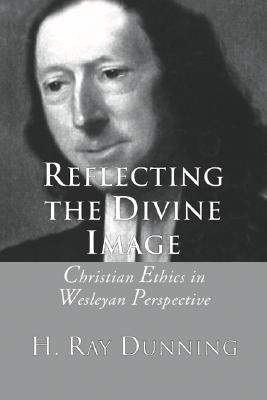John Wesley strived for a theology--a theology both written and lived--that delicately balanced sanctification and justification. He hoped to uphold both faith alone and holy living. Sadly, says theologian H. Ray Dunning, many of Wesley’s followers have not maintained that balance. Some have tended toward legalism, some toward a preoccupation with personal holiness, and others toward social activism with little theological grounding. Dunning believes Wesleyanism possesses the resources to help all Christians reflect the divine image, and to do so holistically, in all aspects of life. His book incisively examines issues of ethical methodology and then shows how an ethic based on the Imago Dei shapes our relation to God, to one another and to the earth. This introduction to and overview of ethics will enlighten and benefit Christians in all traditions, not despite but especially because it is written in the true Wesleyan tradition--passionate, profoundly faithful and plainspoken.
| FindBook |
有 1 項符合
Reflecting the Divine Image: Christian Ethics in Wesleyan Perspective的圖書 |
 |
Reflecting the Divine Image: Christian Ethics in Wesleyan Perspective 作者:Dunning 出版社:Wipf & Stock Publishers 出版日期:2003-10-08 語言:英文 規格:平裝 / 156頁 / 21.6 x 14.2 x 1 cm / 普通級 |
| 圖書館借閱 |
| 國家圖書館 | 全國圖書書目資訊網 | 國立公共資訊圖書館 | 電子書服務平台 | MetaCat 跨館整合查詢 |
| 臺北市立圖書館 | 新北市立圖書館 | 基隆市公共圖書館 | 桃園市立圖書館 | 新竹縣公共圖書館 |
| 苗栗縣立圖書館 | 臺中市立圖書館 | 彰化縣公共圖書館 | 南投縣文化局 | 雲林縣公共圖書館 |
| 嘉義縣圖書館 | 臺南市立圖書館 | 高雄市立圖書館 | 屏東縣公共圖書館 | 宜蘭縣公共圖書館 |
| 花蓮縣文化局 | 臺東縣文化處 |
|
|
圖書介紹 - 資料來源:博客來 評分:
圖書名稱:Reflecting the Divine Image: Christian Ethics in Wesleyan Perspective
內容簡介
作者簡介
H. Ray Dunning, widely recognized as a premier Wesleyan theologian, was for more than three decades Professor of Theology at Trevecca Nazarene University (Nashville). He is a former president of the Wesleyan Theological Society. His books include the systematic theology ’Grace, Faith and Holiness.’
The Death-Blow to Spiritualism - Being the True Story of the Fox Sisters
The Queen of Hearts and Her House of Cards
Madawwamin Yarjejeniya
The Translation of Holy Quran (聖クルアーン) Japanese Languange Edition Ultimate
شعوبنا من منظور جيوحضاري
A Practical Commentary On Holy Scripture (New Testament)
A Question of Refinement
Shalom: A 4-Week Guided Bible Study Journal on Finding Peace
挪去羞愧
挪去羞愧
The Queen of Hearts and Her House of Cards
Madawwamin Yarjejeniya
The Translation of Holy Quran (聖クルアーン) Japanese Languange Edition Ultimate
شعوبنا من منظور جيوحضاري
A Practical Commentary On Holy Scripture (New Testament)
A Question of Refinement
Shalom: A 4-Week Guided Bible Study Journal on Finding Peace
挪去羞愧
挪去羞愧
|











